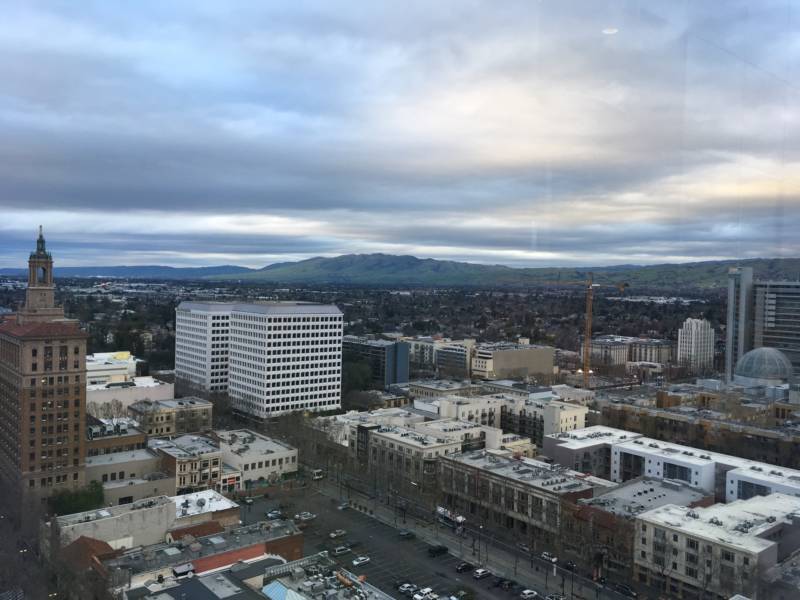With Revenues Down, California's Budget Outlook is Bleak
Less than an hour ago, the state of California released a snapshot of what the coronavirus pandemic has done to the state’s finances. And the numbers are bad. Surging unemployment and business closures mean the state is projecting a drop of more than 25 percent in both personal income tax and sales tax revenues, and a more than 20 percent decline in corporate taxes. Mix this all together we’re looking at a $41 billion dollar drop in state revenue compared to projections in January. This comes as the state spends more on health care to deal with the pandemic.
Guest: H.D. Palmer, California Department of Finance
First ICE Detainee Dies of COVID-19 at Otay Mesa
A sixth prisoner at the Terminal Island federal detention center in San Pedro has died from COVID-19. And more than half of the facility’s thousand inmates have tested positive for coronavirus, as well as fourteen staffers. This makes Terminal Island, which is in between the Ports of L.A and Long Beach, one of the most significant concentrations of coronavirus cases in the state. Meanwhile, a detainee in Immigration and Customs Enforcement custody has died of COVID-19. He was being held at the Otay Mesa Detention Center in San Diego County. This marks the first coronavirus death in ICE custody nationwide.
Reporter: Max Rivlin-Nadler, KPBS
Beef Shortage in California? Not Likely
There’s been much talk recently about whether America’s supply of beef and poultry is threatened, as workers in meat processing plants test positive for the coronavirus, forcing those facilities to temporarily close. Meat suppliers in California say there will be changes, but no shortages.
Reporter: Alex Hall, KQED
Librarians Make Good Contact Tracers
UC-San Francisco is launching a statewide effort to train 20,000 new contact tracers. These are the disease detectives who connect the dots between people who have COVID-19 and the people they’ve come into contact with... and may have infected. Individuals who might have a particular knack for the job are librarians.
Reporter: April Dembosky, KQED
Details Emerge on California's Contract to Buy Masks from Chinese Company
State officials are releasing details of a huge and secretive contract for California to purchase protective gear from China. This follows reporting from the L.A. Times. The document trail reveals the Newsom administration scrambling to acquire hospital masks in the absence of federal leadership.
Reporter: Scott Shafer, KQED Politics Editor
New Website Features Map of Coronavirus Testing Sites
Many people want to get tested to see if they’re infected with coronavirus. But where? Governor Newson has announced a new interactive map Californians can use to find COVID-19 testing locations nearby.
Reporter: Katie Orr, KQED Politics
Silicon Valley Is Still Hiring, For Now...
A lot of California industries are laying off employees. But companies in Silicon Valley are actually hiring people—a lot of people. It’s a good time to be in the market for a mid-level white collar job in web development and tech support.
Reporter: Rachael Myrow, Silicon Valley Desk Editor, KQED
